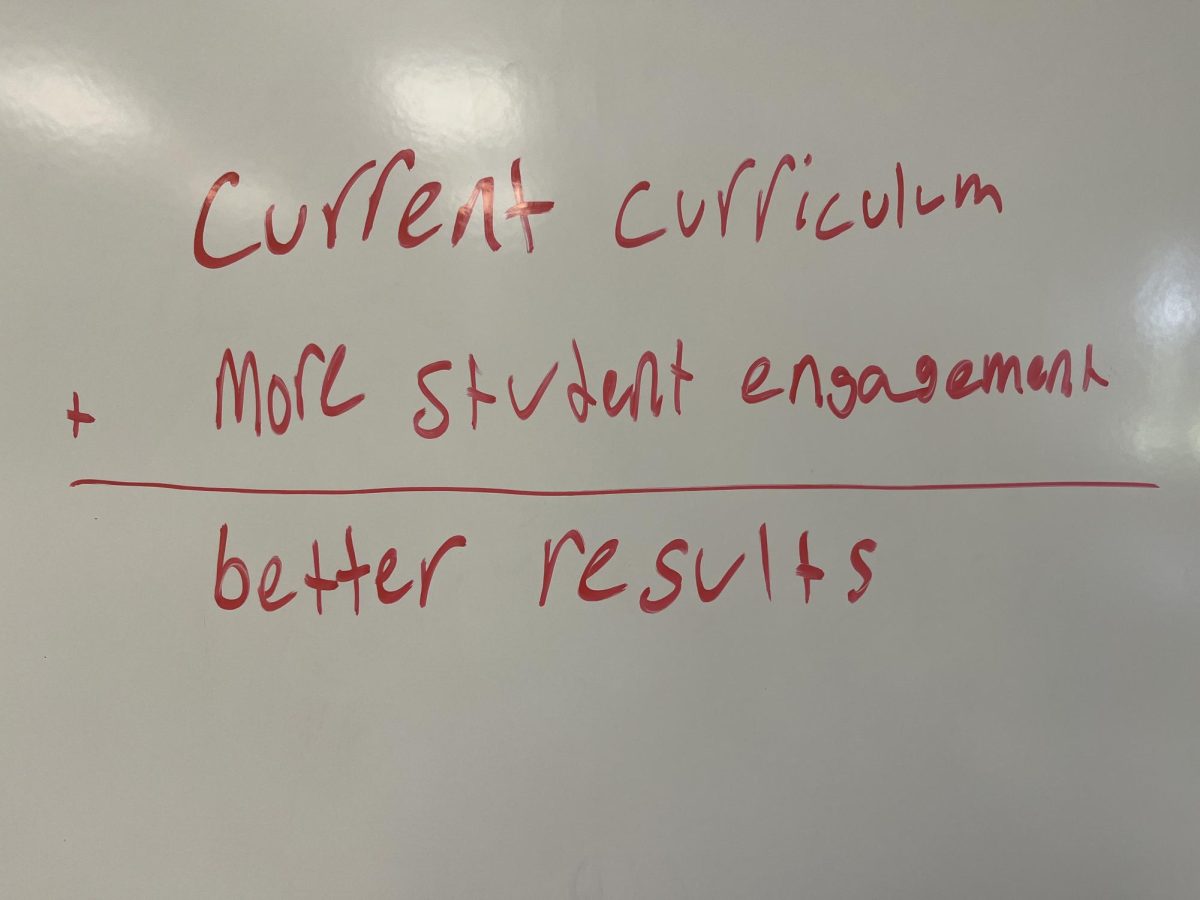Every student deserves to have an engaging and challenging curriculum offered to them, however, about 10% of students taking Integrated II (sophomore math) at Waltham High School feel as though that engagement and enriching programming is not being offered with the current lack of an “advanced” path for math. The pandemic, and the succeeding academic year of 2020-2021 brought a lot of change with it. One of these changes was the switch from the standard math approach, (Algebra I → Geometry → Algebra II → Pre-calc), to the Integrated Math system which compresses the standard curriculum into three years with the fourth year now being Calculus. Previously with the standard mathematics approach not all students could reach Calculus by senior year. This year’s graduating class is the first to go through the four year progression of classes of Integrated Math. However, since this is a new system, an issue has been identified: Integrated Math is not serving the upper echelon of math learners at our school. With no advanced path, whether it be skipping a year or having harder content available upon request, this has caused disengagement and frustration in the student population.
When I asked a student about their current experience with being misplaced in Integrated I when they had already taken Algebra I last year, they said that it “was hard to learn the basics of Algebra all over again,” and they “could have challenged [themselves] so much more in Integrated II … it would have been a better experience.”
What has been happening up until now? Students may want to be in a more challenging or more advanced math class for a variety of reasons, such as already having taken the current math course outside of school, or because they soak in information more quickly than their peers. To circumvent this in the past, only elementary students in fifth grade were able to skip a level, as they were “tested at the end of the year, with the chance for them to skip 6th grade math and go directly into 7th grade math,” as Waltham Public Schools Director of Mathematics Valerie Alfeo explained. However, as this is not an option anymore, students seeking enrichment and challenge in math education have been locked in a gray zone where there are no clear ways to move forward. This reality in math class for many WHS students is contradictory to the mission statement of Waltham Public Schools, as these students are looking for the “enriching, engaging, and comprehensive educational experience” that is promised to every student.
The “advanced” path being dropped occurred with the switch to Integrated Math in the 2020-2021 school year which provided a pathway for all students to reach Calculus, however, it also removed the ability for students to skip up a level. The lack of an advanced path was something that stuck out to me, especially because we used to have one. The switch to Integrated also drops content that is a core part of the basic Pre-Calculus curriculum that is essential for Calculus. This is because of the way Integrated works, compressing four years of math, the system drops the content at the end of Integrated III.
The lack of an advanced pathway and reduced Pre-Calculus curriculum have resulted in student disengagement in a group of math students who need more enrichment and challenge to succeed. This led me to collect testimony to advocate for an advanced path that includes this dropped content and present these student concerns to Ms. Alfeo who directs the math curriculum and Ms. Sarah Kent, Assistant Superintendent for Teaching and Learning, who oversees curriculum for the district. This testimony included four student accounts, an interview with a parent of another student, and a petition form with roughly 10% of the students taking Integrated II signing it. Each of the students interviewed had something in common – they needed more challenges in math. During our meeting Ms. Alfeo stated that these four student cases were the only four cases ever brought to her attention. However, these aren’t the only students who need more from their math classes at WHS as demonstrated by a petition for students in Integrated II which asked for a more challenging math class that would better prepare them for STEM fields and give them more options in the future. Over 40 students signed the petition representing roughly 10% of sophomore students taking Integrated II.
In our productive session Ms. Alfeo and Ms. Kent agreed to support a more effective process to ensure the correct initial placement in math class if a student comes from out of district through the Parent Information Center. The Parent Information Center is where you go if you are registering your child for the Waltham Public Schools system. This would help resolve the issue of students being placed in the wrong level of math which was seen in two of the student examples I discussed with Ms. Alfeo. Going forward, Ms. Alfeo will have an oversight role in the placements, because the guidance staff who assign courses have not fully understood where to place students in the past. We also agreed upon the need to have more challenging work offered to students for Integrated II & III which will help alleviate some of the disengagement expressed in the documented student cases. Ms. Alfeo’s solution to this current disengagement is for Integrated II & III teachers to collaborate on more challenging work to be offered to students who need it. Currently some of these students are sitting and “[waiting] for extended periods of time during each class for their classmates to finish their work or to get another assignment” as one student put it.
As a district, with these steps in mind, we can help keep our high-achieving students engaged without putting strain on resources or jeopardizing learning. However, the Integrated II & III classes are not the only places in the math experience where the students have expressed struggling with these issues, even in elementary school. This is an issue that other districts experience as well, as highlighted in this Wall Street Journal article. For example, “[in] Cambridge, some parents have pushed back on a shift in district policy that has left students in middle school without access to advanced math”. This shows that this is an issue that is present across the state. Since WHS is a leader in switching to the Integrated Math system, with other schools even using WHS as a model, the solutions we come up with would be impactful to even those outside our district. With this solution we’d also be able to roll the system down to the elementary and middle schools and further lead by example.
Since I’ve been through this advocacy process researching and representing student experience in our math curriculum, I know how to reach out to our teachers and administrators. I want to put myself out there as someone who can help any students reading this article with advocating for themselves. You can reach out to me at my email and let me know how I can help you. Ongoing conversations and feedback can resolve ambiguity between students and administration, and it would help hold both parties accountable. This would allow us to better fulfill our mission statement, as we would be better able to enrich students and provide the engagement that students need to succeed.







Tahmil • May 23, 2024 at 9:01 am
Hi Jesse. Good Job!